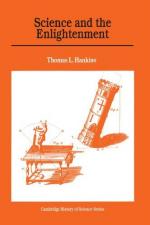
|
| Name: _________________________ | Period: ___________________ |
This quiz consists of 5 multiple choice and 5 short answer questions through Chapter 5, Natural History and Physiology.
Multiple Choice Questions
1. According to the narrator in Chapter 5, who coined the word "spermatozoon" in 1827?
(a) Von Baer.
(b) Hartsoeker.
(c) Linnaeus.
(d) Swammerdam.
2. Vis viva was thought by its creator ________ to be the dynamic quantity that was conserved in the universe, according to the narrator in Chapter 2.
(a) Euler.
(b) Leibniz.
(c) 'sGravesande.
(d) Descartes.
3. The narrator reveals that vis viva was a measure of ________ to conserve his creation while "action" was a measure of his efficiency.
(a) God's desire.
(b) Man's passion.
(c) God's demeanor.
(d) Man's desire.
4. Newton had not made it clear whether the forces acting between the planets and between the parts of matter acted at a distance or through some intervening medium called a(n) ________.
(a) Fluid.
(b) Witness.
(c) Ether.
(d) Osmosis.
5. In Chapter 3, ________ and ________ were both led to the problem of specific heat by the discovery that a great deal of heat was required to melt ice, even though its temperature remained at the melting point.
(a) Black / Coulomb.
(b) Galvani / Volta.
(c) Wilcke / Robison.
(d) Black / Wilcke.
Short Answer Questions
1. Who had written a preface to the second edition of the "Principia," supposedly with Newton's blessing, that described gravity as a force acting at a distance without any intervening medium?
2. Haller carried out his famous investigations into the sensibility and irritability of __________, according to Chapter 5.
3. In Chapter 5, who wrote, "We may conclude that the organs of the body have not always existed, but have been formed successively - no matter how this formation has been brought about"?
4. Chapter 5 reveals that in ________, natural theology declined after 1750 as a result of the anti-religious sentiment of the Enlightenment.
5. The concept of subtle fluids made its appearance around ________ when demonstration experiments in physics were rapidly gaining in popularity, according to the narrator in Chapter 3.
|
This section contains 296 words (approx. 1 page at 300 words per page) |

|




